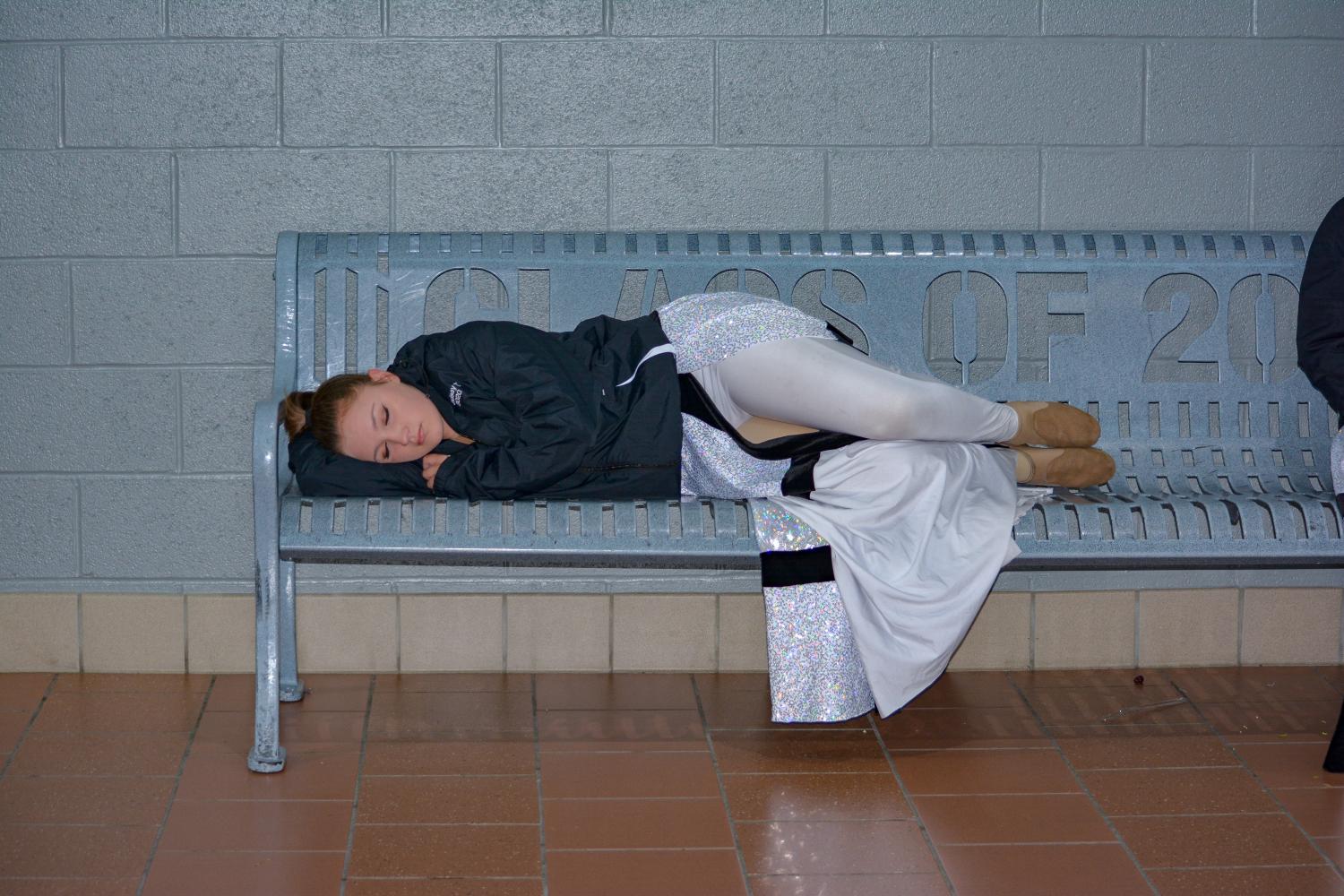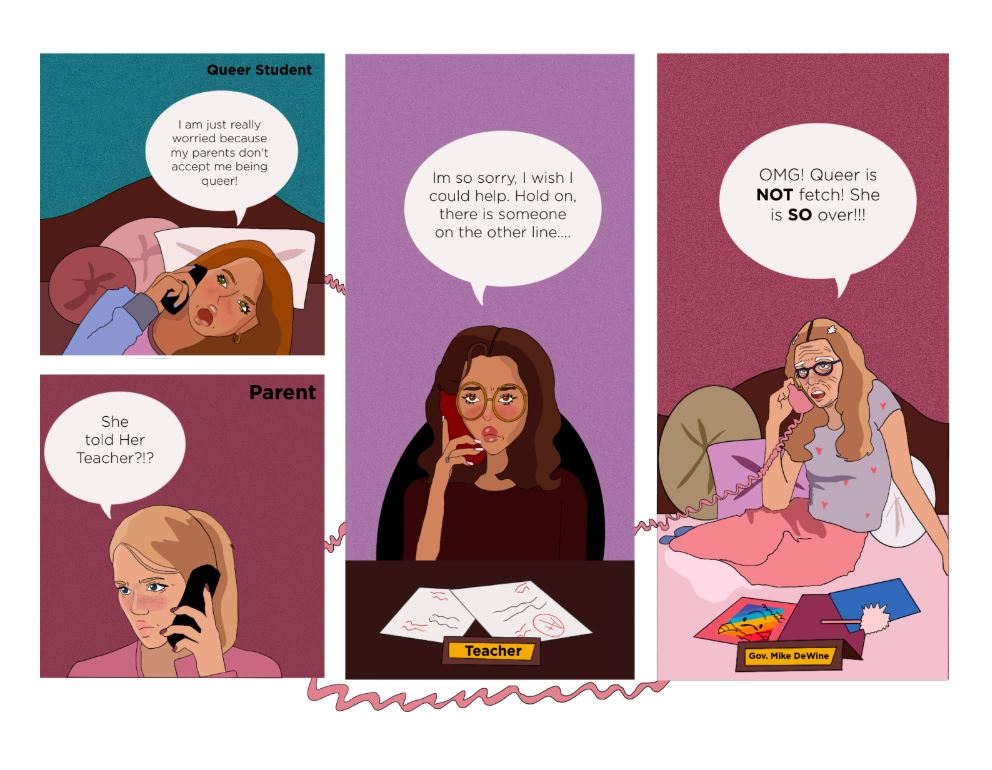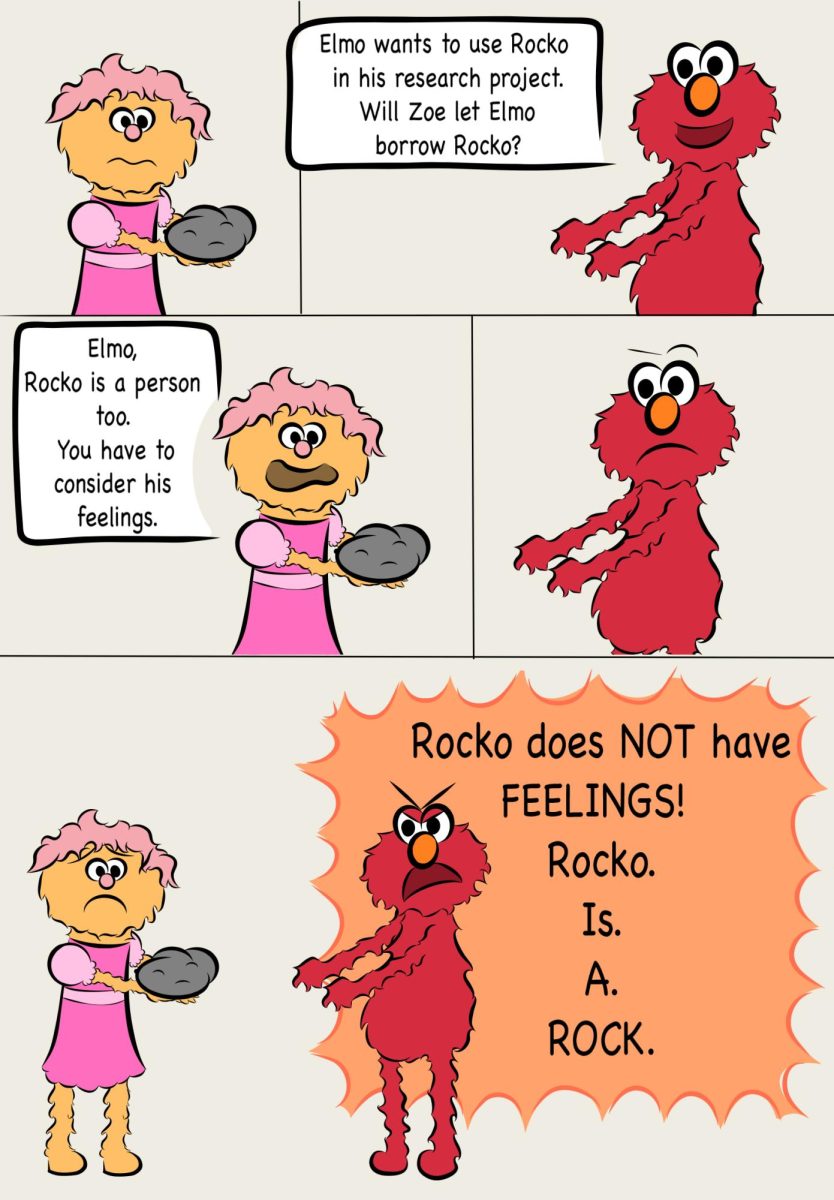On Jan. 9, Ohio Governor Mike DeWine signed into law House Bill 8, also known as the “Parents’ Bill of Rights.” The bill becomes effective on April 9. The basics are that it requires schools to allow parents to review educational materials with sexuality and gender identity content, gives parents the ability to opt their kids out from sexuality and gender identity content, and requires schools to notify parents about changes in their childrens’ mental, physical, or emotional well-being, including conversations about sexuality or gender identity.
Part of this bill allows parents to be informed about their child’s general healthcare and overall what they learn about at school. However, this is misleading because the majority of the bill is not so beneficial. Sexuality and gender identity content being slipped into the bill means that some students could be deprived of the education needed to help students learn about a group of people who they will very likely interact with at some point in their lives.
The fact that LGBTQ+ people exist is not going away, and if students learn about this community in school, then their knowledge will weaken their implicit biases. According to Empowering Education, diversity in learning material is a way to promote diversity, and “consistent exposure to differing viewpoints teaches students to challenge traditional or singular ways of approaching subjects.”
The bill was ultimately a response to people who were concerned that students were learning about sexuality and gender identity content in schools. This worry stems from the belief that it could somehow influence their children to become LGBTQ+. The fact that parents will be able to review content with sexuality and gender identity is derived from the fact that many people view sexualities and genders different from their own as inherently bad. There would be no need for review if there was no discrimination and bias against the LGBTQ+ community.
The name “Parents’ Bill of Rights” makes the bill seem at first glance like it is positively affecting families. However, it actually harms LGBTQ+ students who live in households where they are not accepted.
DeWine said, “[LGBTQ+ students] are welcome in our schools and we want to protect them as we protect every other student. But I do believe that parents, again, having information, they’re the most likely people to help that child.”
What DeWine and the Ohio House and Senate clearly did not care to consider is that many LGBTQ+ students live in homes in which they are not accepted for their sexuality or gender identity, and therefore do not have the option to talk about these topics.
Whether these students are struggling with their sexuality or gender identity or just wanting another trusted adult to talk to, teachers are now out of the question. According to this new bill, if a student confides in their teacher about anything related to their sexuality or gender identity, their teacher is now legally obligated to tell the student’s parents.
According to Equality Ohio Executive Director Dwayne Steward, “It’s deeply disappointing that Gov. DeWine has signed HB 8 when it was opposed by educators and the LGBTQ+ community alike because it punishes teachers and staff for supporting LGBTQ+ students who are already targets of bullying and harassment.”
Many teachers in the past have made an effort to be a trusted adult for students to talk to who is separate from their home life. Teachers who value the privacy of their queer students and understand the implications that come from outing students to their parents are severely affected by this bill.
According to a survey of over 18,000 LGBTQ+ U.S. citizens ages 13 to 24 by The Trevor Project, “90% of LGBTQ+ young people said their well-being was negatively impacted due to recent politics.” Legislative decision after legislative decision has been made against LGBTQ+ youth. House Bill 8 is yet another one of these rules that are detrimental to the young LGBTQ+ students all over the country. It is now even harder than before for LGBTQ+ students to feel safe and supported at school.









































































































